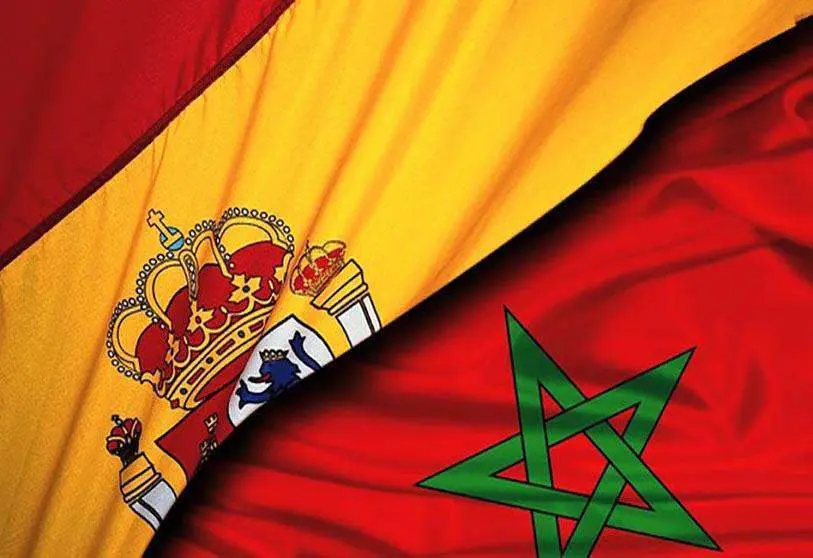Morocco-Spain: A relationship in free fall

April and May have witnessed a new clash in the already tense Spanish-Moroccan relationship. The reason was the hospitalisation of Polisario Front leader Brahim Gali, suffering from COVID, in Spain. For Rabat, the action is a serious affront, as it considers the Polisario to be a terrorist group. As if that were not enough, Spain's credibility was called into question when the newspaper Jeune Afrique revealed that Gali was taken in as a favour to Algeria - Spain's main gas supplier and Polisario supporter - not for humanitarian reasons, as originally claimed.
This week, the crisis has spread from the diplomatic sphere to the migratory sphere, with the massive influx of migrants into Ceuta in the face of the passivity of the Moroccan authorities. Spain's reaction was immediate, with the announcement of the dispatch of military and police to the border and the prime minister's decision to travel to the area to see the situation first-hand.
However, the long-term implications of this new impasse between Rabat and Madrid have not been analysed. It is not yet known when the High Level Meeting (RAN) between the two countries, postponed since December, will take place, while Gali's hospitalisation has reopened legal dossiers against him, complicating Spain's decision to give him medical treatment.
The RAN between Morocco and Spain was to take place in December last year, but shortly after it was due to take place, Morocco decided to postpone it. The official reason was COVID-19 and the risk of contagion. Unofficially, Spanish unease at the US recognition of Moroccan sovereignty over the Sahara was the reason for postponing the meeting. Within the Spanish coalition government - mainly in the Unidas Podemos side - there is sympathy for the Polisario. Nor did Rabat take kindly to the lukewarm official reaction of the Spanish government, which limited itself to calling for respect for UN resolutions - in Rabat's eyes a wet paper. The difference of opinion on the issue created a sense of unease that Gali's hospitalisation has amplified. Indeed, this episode is likely to worsen the chances of the RAN happening soon.
Regarding Gali's hospitalisation, beyond Morocco's double anger at the fact that Spain is providing medical treatment to what in its eyes is its greatest enemy and that this was done as a favour to Algeria, the decision by the Spanish judiciary to summon Gali next month for genocide complicates the chances of resolving the crisis. This summons further calls into question Madrid's decision to hospitalise him, as it is now not only taking care of someone who is a nuisance to another country, but also someone with cases pending before the Spanish judiciary. Rabat will argue that Spain has given medical cover to someone with pending cases in Spain, which would damage our image in Morocco, as in its eyes we have given asylum to the leader of a terrorist group fighting for the independence of a territory that the Alawite kingdom considers (fiercely) as its own. It is very likely that Gali's stay in Spain will be extended. This will displease Morocco, which may result in a relaxation of the borders, thus facilitating the passage of migrants into Spain, as we have seen this week.
The massive influx of migrants into Ceuta, in the face of the passivity of the Moroccan authorities, is one of the pressure tools Rabat uses when there are tensions in bilateral relations. This situation has not only set off alarm bells in Ceuta and Melilla, which border Morocco by land, but also in the Canary Islands, which have seen the number of sub-Saharan immigrants - most of whom come from the Sahrawi coast - grow exponentially since 2020. It is feared that what happened in Ceuta could happen in the archipelago, complicating the islands' fragile reception capacity (few facilities for this purpose, lack of means to patrol and rescue migrants). Moreover, if this were to happen, it would further strain bilateral relations, especially because in the Canary Islands, due to their proximity and colonial ties, there is sympathy for the Polisario cause, especially among some Canary Islands political groups with power in the regional government.
In conclusion, Spanish-Moroccan relations, which were already going badly, have recently worsened with Spain's decision to take in and hospitalise Polisario Front leader Brahim Gali, suffering from COVID 19. The secrecy of this hospitalisation - which was not communicated to Morocco - and the revelation that he was hospitalised as a favour to Algeria and not as initially claimed for humanitarian reasons, angered Morocco. This anger complicates the chances of the RAN, postponed since December, taking place. Moreover, the reopening of a court case against Gali for genocide means that his stay in Spain will be long, complicating the resolution of the crisis.
The entry of migrants into Ceuta, in the face of Morocco's passivity, has not only raised alarms in both autonomous cities, but also in the Canary Islands, which have seen an increase in the number of migrants arriving on their coasts since last year, despite having few resources, both to receive them and to guard the coasts. It is feared that what has happened in Ceuta will be replicated on the islands via the Saharawi coast, close to the archipelago. This would further strain relations in a territory where the Polisario cause has a social and institutional echo.

